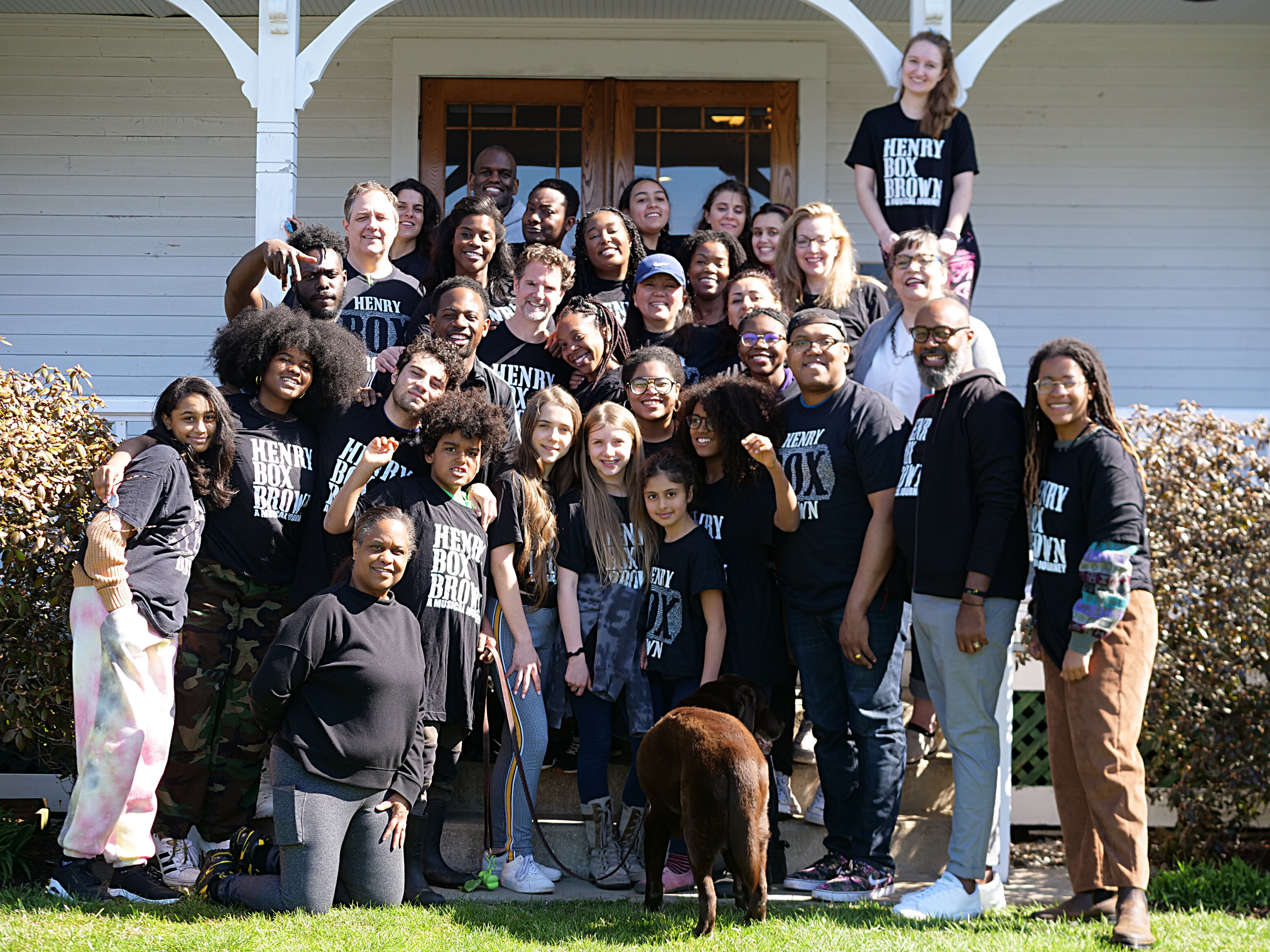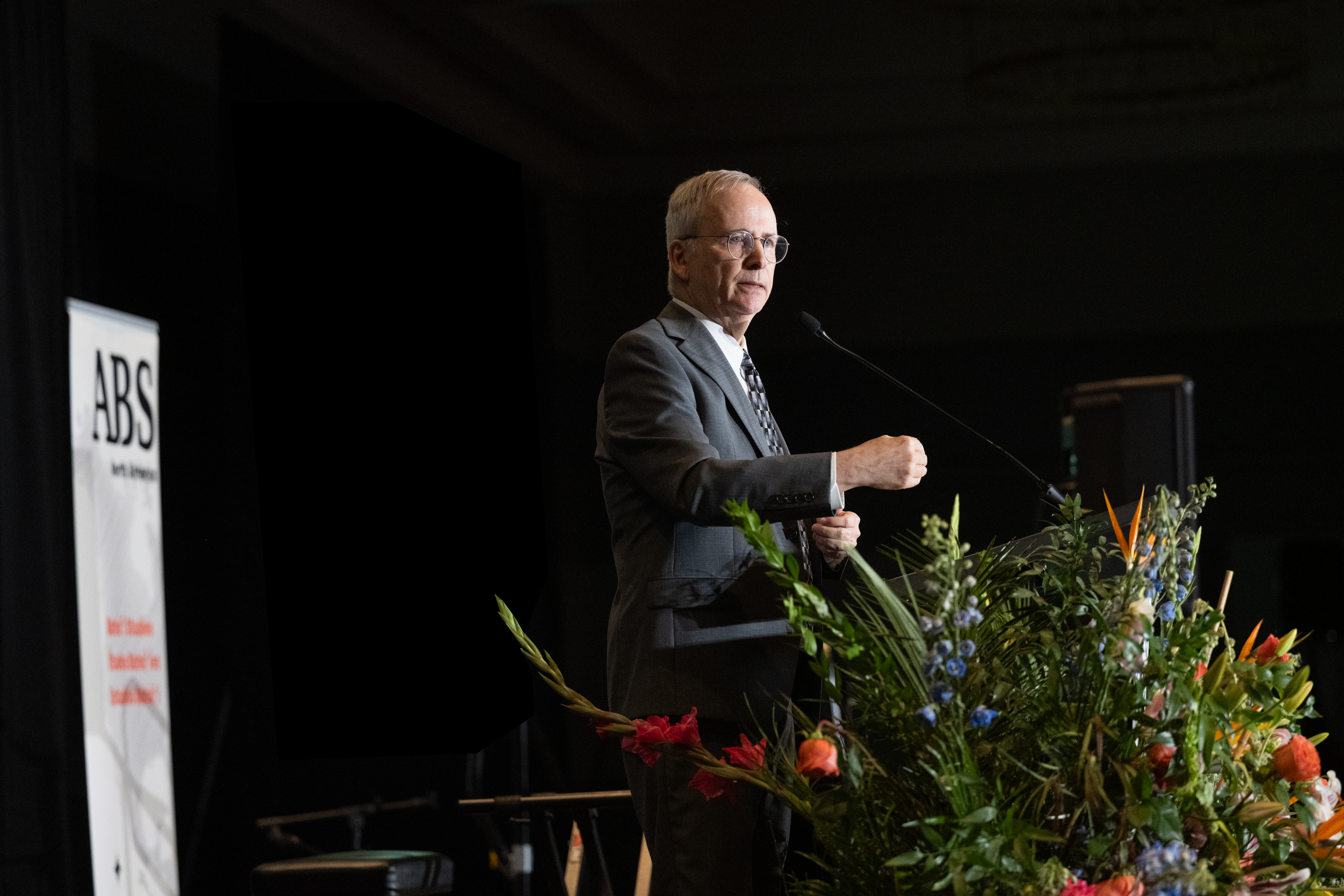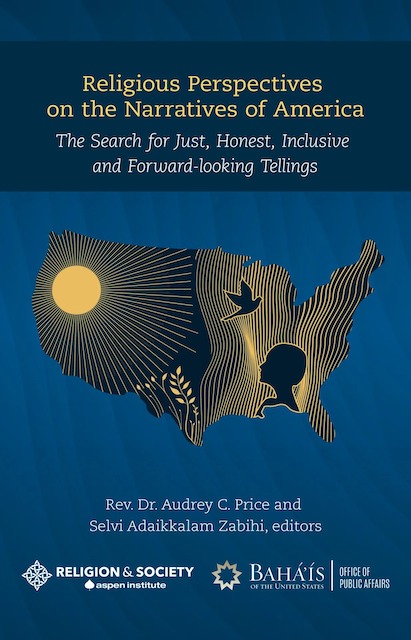
Social justice, resilience and action form focus at ABS conference
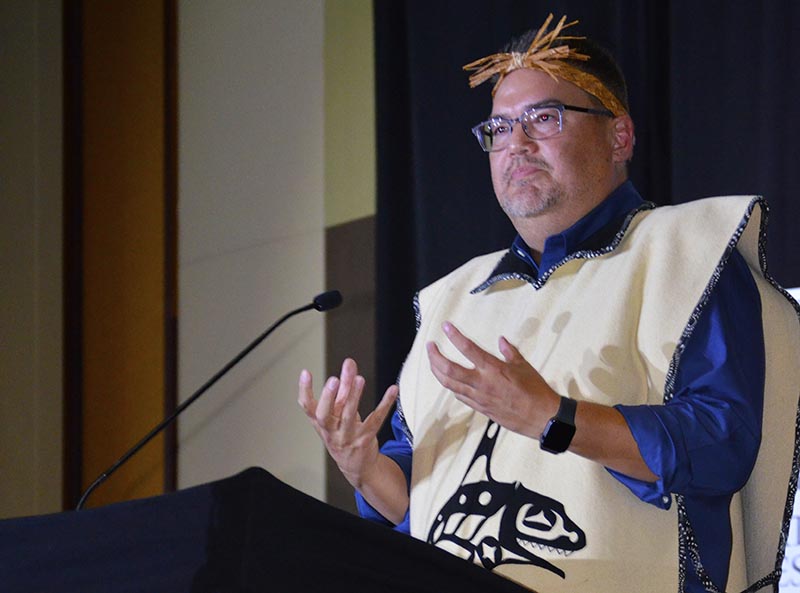
A focus on social justice that so galvanized last year’s Association for Baha’i Studies – North America conference was obvious from the start of the 2019 ABS gathering Aug. 8-11 in Ottawa, Ontario.
“We welcome all of you here today to the ancient territory of the Algonquin people, who for over 200 years have received all of us as their guests,” said Shabnam Koirala-Azad in the first plenary session.
A later speaker put a fine point on the sentiment, terming Ottawa and its environs “unceded” land.
So it was no surprise that concern for the rights and progress of indigenous and other significant populations — such as African Americans and recent immigrants — was integral to the conference.
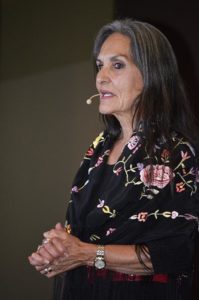
Breakout sessions explored such topics as the role of black artists in transforming the devotional character of communities and how non-indigenous people can contribute meaningfully to reconciliation. Native storytelling added a layer of richness to the weekend’s array of artistic expression.
But it was through plenary talks and panels that conference participants were introduced to such concepts as womanism and constructive agency.
The latter builds on what attendees learned last year about constructive resilience — defined by the Universal House of Justice, global governing council of the Baha’i Faith, as a powerful response to long-term systemic oppression that can effect transformation in individuals and society.
“Expressions of Constructive Resilience: African American Womanism and the Baha’i Faith in Dialogue” (Layli Maparyan)
Maparyan framed her talk with a quotation of Baha’u’llah, prophet-founder of the Baha’i Faith, that she said “speaks to the spirit of constructive resilience”:
These are Thy servants whom the ascendancy of the oppressor hath failed to deter from fixing their eyes on the Tabernacle of Thy majesty, and whom the hosts of tyranny have been powerless to affright and divert their gaze from the Dayspring of Thy signs and the Dawning-Place of Thy testimonies.
“Please take a moment to let this passage sink in,” Maparyan urged her listeners. “Allow yourself to feel what it’s like to be undeterred by an oppressor. Allow yourself to imagine what it’s like to stand in front of the hosts of tyranny and not succumb to fright.
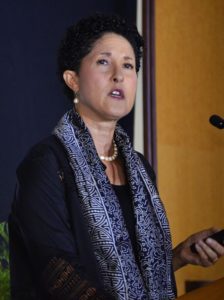
“And then feel that glorious feeling that comes from keeping your gaze fixed on ‘the Dayspring of Thy signs and the Dawning-Place of Thy testimonies.’ Hold all of that as we go forward.”
The professor of Africana studies said race has been central to her life and work. Her white father and African-American mother were among Baha’is pictured in a 1965 Ebony magazine article about the Faith’s stance on interracial unity. Pivotal moments in the civil rights movement occurred within weeks of her birth.
“Those times must have imprinted me because as an interracial Baha’i child I always knew I had a responsibility to fulfill the promise of my parents’ interracial marriage,” said Maparyan.
Her career path, she said, crystallized in “an interest in how social movements can be spiritual” and over time “my area of specialization became womanism, a social change perspective developed and articulated by African-American and African women.”
Backing up, Maparyan examined race from the perspectives of color, culture and cosmology. The first two can’t “stand in for race in its fullness,” but cosmology — worldview — fits much better because it “represents a deep architecture of thoughts within a given culture.”
For African cosmology, that architecture is its interrelated building blocks of spirituality, community and ecology — a far cry from the symbol of “deficit, deprivation, poverty, primitiveness” it is viewed as in the West, she said.
And at its heart, she said, is womanism, which through its organizing principle of kinship has the potential of “ending all forms of oppression for all people, restoring the balance between people and the environment or nature, and reconciling human life with the spiritual dimension.”
How? “In contrast to the politics of opposition, so prevalent in today’s conceptions of social justice and social movement, womanism offers the politics of invitation, inviting all to come together in this global family formation and this reality of interrelatedness and oneness,” said Maparyan.
As an action-oriented spiritual movement, she said, womanism fits right in with the Baha’i approach to achieving oneness. “For Baha’is the idea of applying spirituality is already built in. In fact, there is no spirituality without application. … For us, religion exists for the betterment of humanity.”
Similarly, womanists believe that “inner and outer realities must be aligned for social or environmental transformation to be truly sustainable.” And the two visions “converge on the value of both ongoing cultural diversity and the emergence of a planetary form of identity consistent with the oneness of humanity,” Maparyan concluded.
“Beyond Resistance, Beyond Critique: Exploring Constructive Agency in Social Movement and Critical Scholarship” (Caity Bolton, Elizabeth de Souza, Holly Hanson, Michael Karlberg, Layli Maparyan, Michael Penn, Sahar Sattarzadeh, Derik Smith, Bradley Wilson)
On one side of the stage sat four longtime practitioners of social action and discourse. On the other, a generation of Baha’is deriving fresh lessons about effective involvement in those arenas.
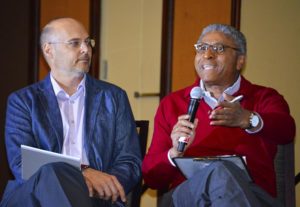
The veterans’ role — beyond an introduction by Karlberg — was to pose questions for their younger colleagues to answer from recent experience in such places as Zanzibar, South Africa and Appalachia and from such perspectives as the arts and African-American literary culture.
Karlberg explained how conversations on constructive resilience since early 2017 led to a series of seminars and to this presentation, which participants decided should speak more broadly to “what we’ve come to think of or understand as constructive agency.”
Agency, in social theory circles, refers to the exercise of conscious and intentional will in the pursuit of change. “So constructive agency,” he said, “refers to a response to injustice characterized by the active construction of more just patterns of community life and corresponding social structures.”
That contrasts with more contentious approaches to change, but Karlberg noted “we are not using this distinction to judge those who pursue justice through contentious means.” He also pointed out that constructive agency does not imply “passivity or complacency in the face of injustice.”
“Constructive implies active or urgent responses to injustice through constructive means aimed at deep or radical social transformation,” he said. “And it enables us to invite people into a conversation about the implications of that.”
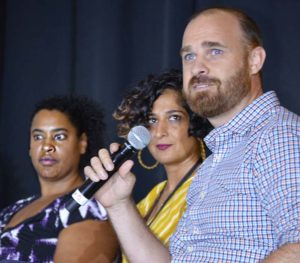
De Souza said the arts can be instrumental in that process. “Art gives us a sacred ground on which to meet where beauty, truth and inquiry can be joined seamlessly,” she said. “In its highest form, art can create an opening through which a kaleidoscope of possible solutions to any given problem can present themselves.”
Her own work as a writer, she said, echoes that of her father, McCleary “Bunch” Washington, “an African-American visual artist who suffered tremendous amounts of racial trauma throughout his life and yet was able to create work that positively impacted and influenced many, many people.”
The core value of constructive agency, said de Souza, can be summed up as “we shall overcome” — not just in the sense of helping people “get through” oppression but as a means to construct a society characterized by justice.
Smith said he draws inspiration for that quest from the poetry of Robert Hayden, a Baha’i who spoke in the 1960s and ’70s of the need to create “love instruments.”
Hayden was derided by some as naïve, and Smith said those who pursue constructive agency today might be likewise criticized. People who view “the suffering of those who are oppressed right now” want change to come immediately and believe it will happen only by forceful means, he said.
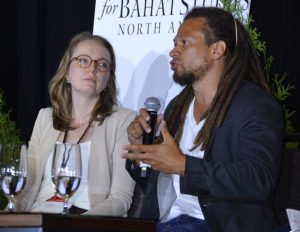
But creating structures that are just and sustainable takes time, Smith noted. And the best way to bring them about, he said, will be to “align ourselves with certain kinds of people who are willing to enact change within the institutions that we really want to build.”
That, he said, means “figuring out how we can do our little part to advance the condition of one who may require some kind of assistance, right? And when we begin to do that … we lose all this kind of attachment to contention and conflict.”
Bolton said her experiences in Zanzibar, where she has helped build community ties within an Islamic culture, bear that out. Many people she has worked with see resistance as the only way to push back against rising individualism and class stratification, she noted.
Others, though, are getting real results from such collective approaches toward empowerment as a community banking project that funds small businesses and initiatives that build formal or informal means of mutual support.
In that way, said Bolton, people can make unique contributions to a world that has seen them only as recipients of development aid.
Sattarzadeh, in South Africa, and Wilson, first in Nicaragua and then Appalachia, also have seen cooperative responses to economic crisis begin to take root.
“It goes to this concept of power,” said Sattarzedeh, “and how we reconceptualize power not to be only material, economic and physical but also the spiritual inherent within the individual.”
That, said Wilson, has fueled approaches to recovering from the loss of jobs — whether it be from coffee in Nicaragua or from coal in West Virginia and Kentucky.
“Thinking about the creation of a different world and imagining that world together,” he said, “is really central as an important quality and attribute of constructive agency and constructive social movements.”
“Social Transformation through Reconciliation: Love, Justice and Unity in the Defining Moment in Indigenous Peoples’ Relationship with Canada” (Douglas S. White)
A powerful example of moving from confrontation to cooperation in pursuit of social change was provided by White, a lawyer and negotiator who serves native peoples of Canada in a multitude of capacities.
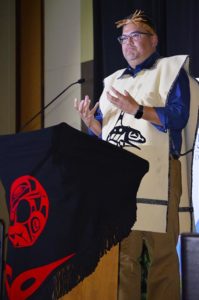
As a youth living on an Indian reserve in British Columbia, said White, he had to use his fists to survive. As a tribal leader and legal advocate for Canada’s aboriginal people, he had to use litigation to regain land.
“Being in that mode of constantly being under attack” is the “experience of colonialism” for him and all other native people, said White. “It’s pretty grim. It manifests in so many different ways in every experience that you have, every interaction that you have.”
He talked about the displacement of “our own systems of government, of leadership and law” — not to mention the physical reality of being confined to the “very tiny little space” of a reservation in a huge province the size of Washington, Oregon and California combined.
Then, he pointed out, there is the legacy of a residential school system that suppressed native language, religion and culture; the ongoing tragedy of missing indigenous women and girls; and the ever-increasing rate of incarceration of indigenous people.
White’s response for many years was to inflict “maximum pain on the provincial government,” he said. “Make them suffer. Make life miserable. Be merciless. Fight, fight, fight. Don’t give an inch of ground.”
That approach did yield some victories, he noted. “For the first time we get our own assets, and it’s transformative and important in certain ways.”
But on the whole “it doesn’t bring us anywhere new with the Crown or the rest of the problems,” he said. And as he became immersed in the Baha’i writings he envisioned a different future.
“More and more what matters to me is not the defensive or the protective steps or actions that I have to take with respect to my own people or land or children,” he said. “It’s about trying to figure out how to create the world that we want for them. What are the necessary elements for creating a different kind of world?”
Bottom line, he said: “I want my children to be loved by other Canadians. And I want my children to love them in return. I came to a realization that I would never be able to create that world by bashing people over the head with lawsuits in a fighting mode.”
Instead, he said, “The only hope we have is if we’re working together in unity. Indigenous peoples aren’t going to be able to do this hard work by themselves. I know that working together, we can help each other.”


